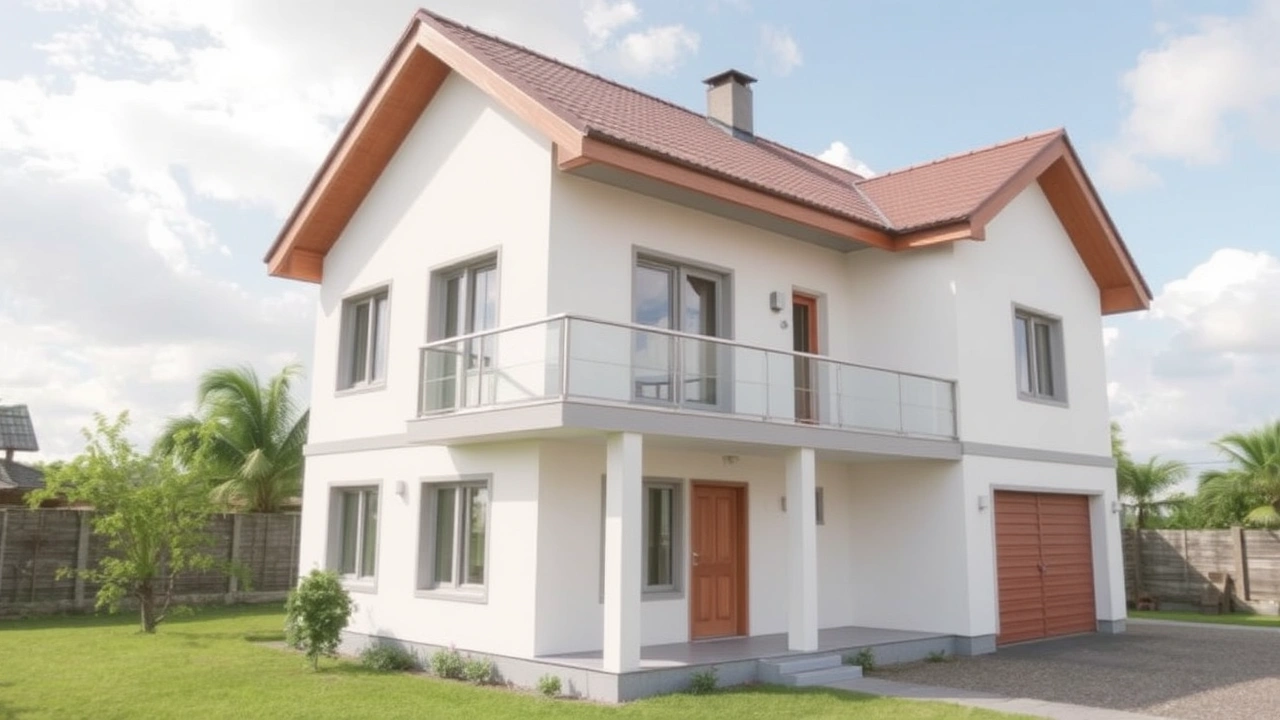
 Published on and written by Cyril Jarnias
Published on and written by Cyril Jarnias
Long-term real estate rental in France can prove to be a profitable and secure venture for property owners. However, it’s crucial to thoroughly understand the current rules and practices to optimize your investment and avoid pitfalls. In this article, we’ll explore the essential aspects of long-term rentals in France, from establishing the lease agreement to managing tenant relationships.
The Long-Term Rental Market in France: A Stable and Promising Investment
The French rental market remains dynamic, despite economic fluctuations. In 2025, demand for rental housing continues to be strong, particularly in major cities and high-demand areas. This situation offers excellent opportunities for property owners looking to invest in long-term rentals.
According to the latest INSEE data, nearly 40% of French households are renters, representing a substantial market. Long-term rentals, typically lasting 3 years for unfurnished properties and one year for furnished ones, constitute the majority of these rentals.
The stability of this type of investment is reinforced by a well-defined legal framework that protects both property owners’ and tenants’ interests. However, to get the most out of your real estate property, it’s essential to master the legal and practical aspects of long-term rentals.
The Lease Agreement: The Cornerstone of Your Rental
The lease agreement is the fundamental document governing the relationship between the property owner and the tenant. In France, the law strictly regulates the content of this contract to ensure fairness and transparency.
The lease must be written and include certain essential clauses, such as:
- The identity of the parties (property owner and tenant)
- A precise description of the property and its annexes
- The effective date and duration of the lease
- The amount of rent and charges
- The conditions for rent adjustment
- The amount of the security deposit
For an unfurnished rental, the minimum lease duration is 3 years (or 6 years if the property owner is a legal entity). For a furnished property, it’s one year, or 9 months for a student.
It’s crucial to draft a lease that complies with current legislation. A poorly written contract can lead to costly and time-consuming disputes. Don’t hesitate to seek assistance from a professional (lawyer, notary, or real estate agent) for this process.
Good to know:
Since 2023, it’s mandatory to attach an Energy Performance Certificate (DPE) to the lease. Properties classified F or G can no longer have rent increases upon lease renewal.
Setting the Right Price: The Art of Determining an Attractive and Profitable Rent
Setting the rent is a crucial step that will directly influence your investment’s profitability. You need to find the right balance between attractiveness for tenants and profitability for yourself.
Several factors come into play when determining the rent:
- The property’s location
- The surface area and number of rooms
- The general condition and amenities
- Local market prices
- Potential rent control in certain areas
In high-demand areas, like Paris and certain major metropolitan areas, a rent control system is in effect. It sets reference rents that property owners cannot exceed, except with specific justification.
For other areas, the rent is generally free at the first rental or with each tenant change. However, upon lease renewal, the increase is limited to the evolution of the Rent Reference Index (IRL) published quarterly by INSEE.
In 2025, the average gross rental yield in France ranges between 3% and 7%, depending on the city and property type. Major metropolitan areas generally offer lower yields but greater rental security.
Good to know:
To optimize your yield, consider furnished rentals. They often allow for higher rents and benefit from advantageous tax treatment with the LMNP (Non-Professional Furnished Landlord) status.
Property Management: Cultivating Harmonious Relationships with Your Tenants
Good property management is essential to ensure the longevity and profitability of your investment. It involves maintaining cordial and professional relationships with your tenants, while ensuring respect for your mutual rights and obligations.
Here are some key points for successful property management:
- Rigorous tenant selection: Carefully review application files, ensuring candidate solvency without practicing discrimination.
- Move-in and move-out inspections: Conduct detailed inspections to avoid future disputes.
- Regular property maintenance: Perform necessary repairs promptly to maintain the property in good condition and satisfy your tenants.
- Managing unpaid rent: Act quickly and professionally in case of payment delays.
- Compliance with regulations: Stay informed about legislative changes to remain compliant.
Communication is key to a harmonious rental relationship. Listen to your tenants and respond promptly to their legitimate requests. This will promote their satisfaction and reduce the risk of conflicts.
If property management seems too time-consuming or complex, you might consider hiring a professional. Real estate agencies or property managers can handle all management tasks for fees typically ranging between 6% and 8% of collected rents.
Good to know:
Subscribing to unpaid rent insurance can protect you against risks of unpaid rent and damages. Its cost, approximately 2.5% of rents, is deductible from your rental income.
Tax Aspects of Long-Term Rentals
Taxation is a crucial element to consider in your long-term rental strategy. Rental income is subject to income tax, in the category of rental income for unfurnished rentals, or BIC (Industrial and Commercial Profits) for furnished rentals.
For unfurnished rentals, you can choose between two tax regimes:
- The micro-property regime: If your rental income is less than €15,000 per year, you benefit from a standard 30% deduction on your rents.
- The actual expense regime: You deduct your actual expenses (renovations, loan interest, etc.) from your rental income.
For furnished rentals, the choice is between:
- The micro-BIC regime: For revenues below €77,700, with a standard 50% deduction on rents.
- The actual BIC regime: Deduction of actual expenses and possibility of property depreciation.
The choice of tax regime can significantly impact your profitability. It’s recommended to consult an accountant or tax advisor to optimize your situation.
Good to know:
Furnished rentals can offer interesting tax advantages, particularly through the possibility of depreciating the property and furniture under the actual BIC regime.
Conclusion: Long-Term Rental, A Future Investment in France
Long-term real estate rental in France remains an attractive option for investors. Despite a sometimes complex regulatory framework, this type of investment offers appreciable stability and profitability, especially in an uncertain economic context.
The key to success lies in rigorous and professional management of your property. This involves thoroughly knowing the legislation, setting fair rent, maintaining good relationships with your tenants, and optimizing your tax situation.
With a thoughtful approach and careful management, long-term rental can become a source of regular income and an excellent way to build wealth over the long term.
Remember that the real estate market is constantly evolving. Stay informed about local trends and regulatory changes to adapt your strategy and maximize your investment’s potential.
Disclaimer: The information provided on this website is for informational purposes only and does not constitute financial, legal, or professional advice. We encourage you to consult qualified experts before making any investment, real estate, or expatriation decisions. Although we strive to maintain up-to-date and accurate information, we do not guarantee the completeness, accuracy, or timeliness of the proposed content. As investment and expatriation involve risks, we disclaim any liability for potential losses or damages arising from the use of this site. Your use of this site confirms your acceptance of these terms and your understanding of the associated risks.



















